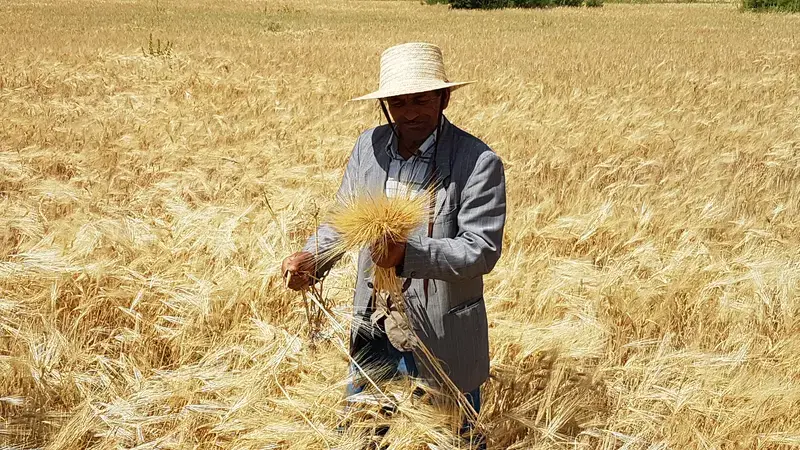Harnessing ICT to improve extension systems

Harnessing ICT for improved extension
Information and communication technologies (ICT) provide an alternative means to overcome these challenges and reach significantly more farmers in a practical and cost-effective way. A new ICARDA-managed project—ICT2Scale—is using mobile phone messaging services that target smallholder farmers with information on new dryland farming technologies and farm management practices.
It also utilizes e-learning platforms, providing online training courses for extension agents—including on gender approaches (strengthening women’s entrepreneurial talents and raising awareness of women’s involvement in agriculture); didactics; harnessing ICT for extension; and natural resource management. All courses will be hosted on ICARDA’s new e-learning portal—http://elearning.icarda.org—using a global and well-established open source Learning Management System (LMS), Moodle.
Enhancing farmer communication
Technical advice verified by NARS, ICARDA and lead farmers on the production of small ruminants, cereal, olive and fruit—popular agricultural products in the project areas—will be sent to farmers on a weekly basis via SMS. The mobile phone messaging service will also give farmers the opportunity to request market price information for agricultural inputs: prices for straw, hay, and seeds, for instance, are collected by extension agents at five local souks and made available to farmers on demand through the use of a ‘short number’—a specified number, in this case 85270, that farmers can call to access the market information they need.
SMS messages and short numbers are made available through cell phone-based services that do not require the use of a smart phone—providing a cost-efficient and feasible way for poor farmers to receive extension information, especially women, who are often excluded by extension services. The project established partnerships with specialized ICT private enterprises based in Tunisia—NG Trend for the ‘short number’ and TunisieSMS for the sending of technical SMS.
Reflecting on lessons learned
In line with ICARDA’s new scaling strategy, the project aims to reach at least 500 male and 500 female farmers via SMS—and it is expected that at least 20 percent of the targeted farmers will adopt improved technologies and/or adjust their farm management practices. If the extension approach proves to be successful, recommendations and coaching will be provided to encourage Tunisia’s national extension services to integrate the approach into their national agricultural extension strategy.
The e-learning modules and mobile phone message service will be accompanied by a survey and interviews with key stakeholders to help ensure the modules and messages are efficient and scalable at the end of the project. Furthermore, with an eye to the initiative’s long-term sustainability, the project will evaluate the extent to which smallholder farmers are able to pay for SMS services, and explore the possibility of developing sustainable businesses.
The ICT2Scale project, initiated in April 2019, is financed by the Federal Ministry of Economic Cooperation and Development of Germany (BMZ) and will end in March 2022.
